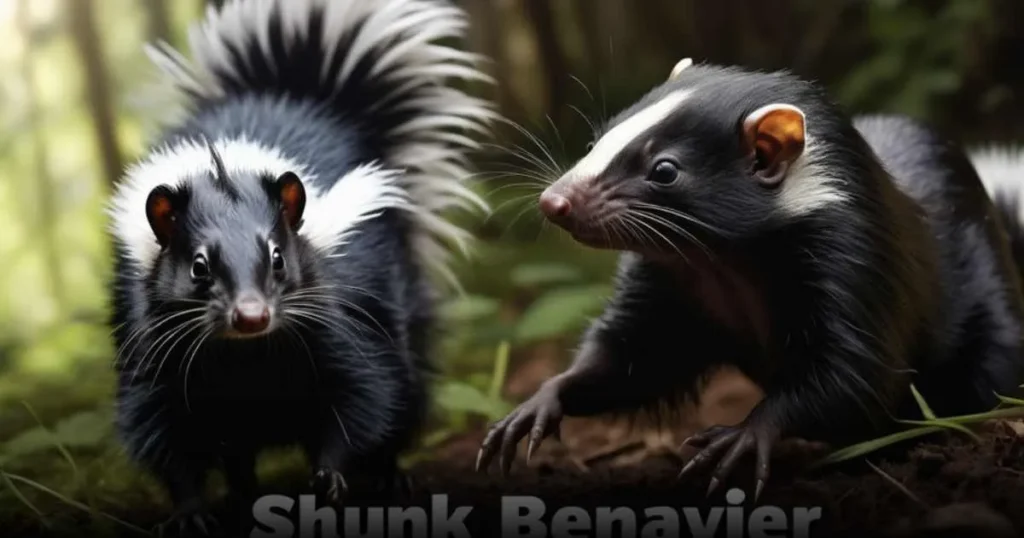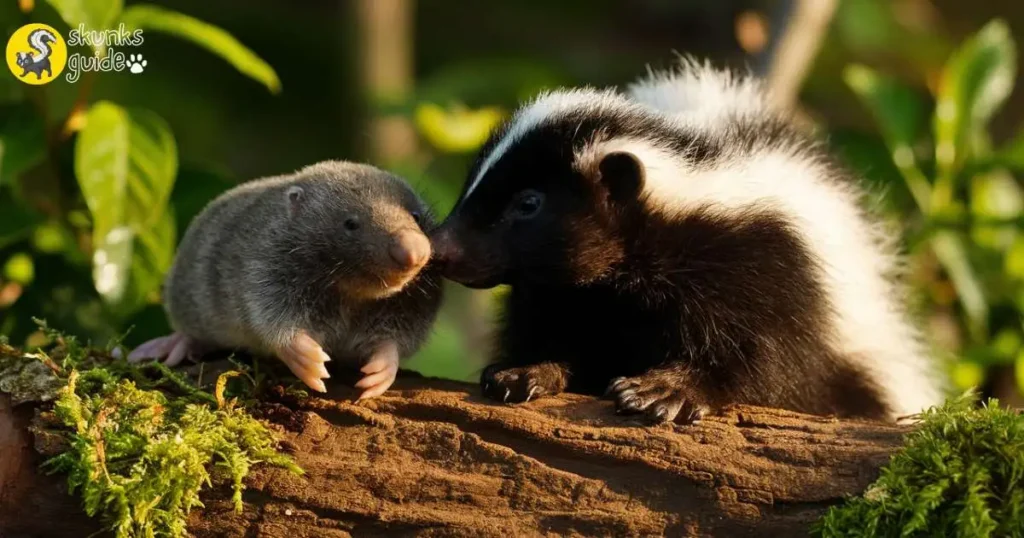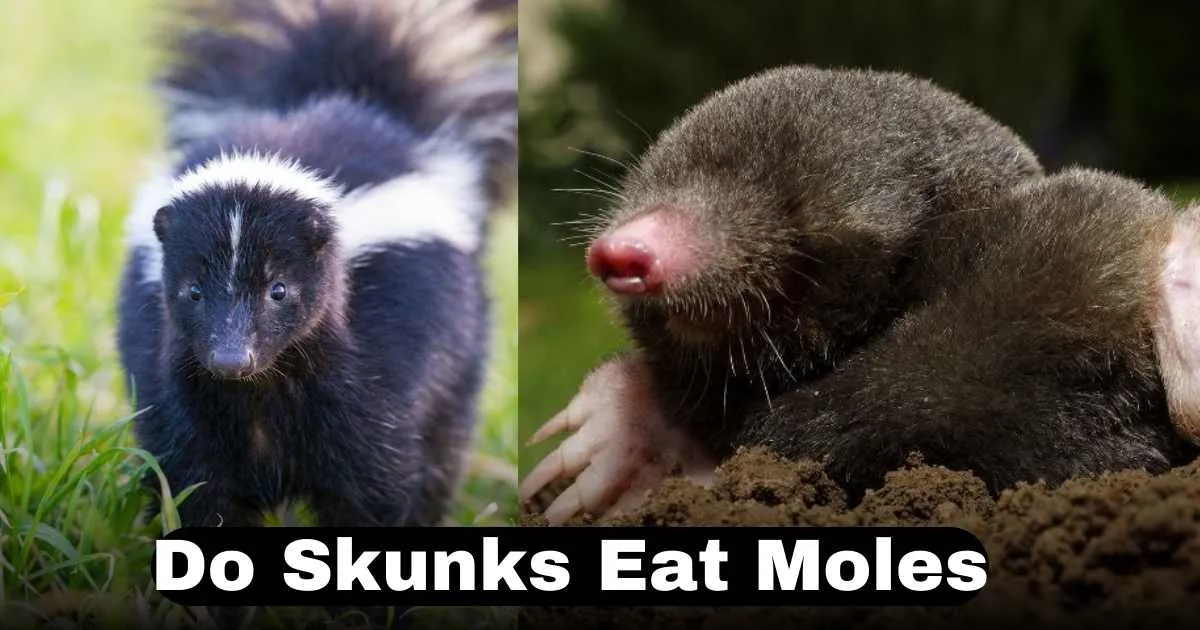Can Skunks Catch and Eat Moles? Their Diet Explained
Last updated on February 25th, 2025 at 10:38 pm
As a skunk pet owner and wildlife enthusiast, I’ve always been fascinated by the diverse dietary habits of skunks. These nocturnal creatures are opportunistic feeders, eating a wide variety of foods that range from insects to small mammals. But do skunks eat moles? The short answer is yes—skunks can and do eat moles, but they don’t actively hunt them as a primary food source. Instead, skunks may consume moles when they encounter them while foraging for other foods like grubs or insects underground.
In this detailed guide, we’ll explore whether skunks eat moles, how they locate them, the ecological impact of this behavior, and practical tips to manage skunk activity in your yard.
Understanding the Skunk’s Diet
Skunks are omnivorous animals, meaning they eat both plant-based and animal-based foods. Their diet adapts to what’s available in their environment, making them highly flexible foragers.
What Do Skunks Eat?
Here’s a quick breakdown of a skunk’s primary diet:
- Insects and Larvae: Grubs, beetles, crickets, and caterpillars.
- Small Mammals: Mice, voles, and occasionally moles.
- Bird Eggs and Nestlings: From ground-nesting birds.
- Fruits and Berries: Apples, cherries, blackberries, and other seasonal fruits.
- Plants: Grass, roots, and seeds.
- Reptiles and Amphibians: Frogs, snakes, and lizards.
- Carrion: Dead animals and leftovers from other predators’ kills.
Moles fall under the category of small mammals that skunks may occasionally prey on if the opportunity arises.

Do Skunks Actively Hunt Moles?
While skunks are capable of eating moles, they are not active hunters of these burrowing mammals. Skunks prefer easier and more accessible prey like grubs, insects, and small rodents. However, skunks may eat moles under certain conditions:
- When They Accidentally Encounter Them: While digging for insects or grubs, skunks might stumble upon a mole and eat it.
- If the Mole is Vulnerable: Injured, sick, or juvenile moles are more likely to become prey.
- During Food Scarcity: In times of food shortages, skunks may expand their diet to include moles.
How Do Skunks Locate Moles?
Skunks have an excellent sense of smell, which allows them to detect food sources underground. Their sharp claws are adept at digging, enabling them to uncover grubs, worms, and, occasionally, moles.
Signs That Skunks Are Digging for Moles
- Small, cone-shaped holes: These are signs of skunks foraging for grubs or insects.
- Disturbed soil near mole tunnels: Skunks might dig into molehills or burrows.
- Patchy grass or yard damage: Indirect effects of skunks searching for prey underground.
Are Moles a Nutritious Meal for Skunks?
Moles provide a high-protein, high-fat meal for skunks, which can be especially beneficial during colder months when food sources are scarce. The nutritional benefits include:
- Protein: Essential for muscle growth and repair.
- Fat: Provides energy and helps skunks maintain their body temperature in winter.
- Minerals: Found in animal tissue, supporting overall health.
While moles are not a staple in the skunk’s diet, they offer significant nutritional value when consumed.

The Ecological Role of Skunks in Controlling Moles
Skunks are natural pest controllers, helping to manage populations of insects, rodents, and, occasionally, moles. Here’s how skunks contribute to ecological balance:
- Control Pest Populations: By eating insects and moles, skunks prevent these creatures from overpopulating and damaging lawns or gardens.
- Soil Aeration: Skunks’ digging activities aerate the soil, improving its health and nutrient distribution.
- Food Web Balance: As both predators and prey, skunks play a crucial role in maintaining biodiversity.
While skunks won’t eradicate moles from your yard, their presence can help reduce mole activity over time.
Managing Skunk and Mole Activity in Your Yard
If you’re dealing with mole damage or skunk activity, there are practical ways to manage both while respecting wildlife.
How to Deter Moles
- Eliminate Grubs: Moles are attracted to areas with abundant grubs, so using natural pest control can reduce their presence.
- Compact the Soil: Moles prefer loose, moist soil for digging. Compacting the soil discourages tunneling.
- Use Mole Traps: Place traps near active tunnels to humanely catch and relocate moles.
How to Deter Skunks
- Secure Trash Cans: Ensure lids are tight and inaccessible to skunks.
- Install Motion-Activated Lights: Bright lights can scare away nocturnal skunks.
- Natural Repellents: Sprinkle cayenne pepper or citrus peels around your yard to deter skunks.
- Block Access to Shelter: Seal off spaces under decks, sheds, and porches where skunks might take refuge.
By managing these factors, you can minimize conflicts with both skunks and moles.
Frequently Asked Questions
Do Skunks Eat Moles Often?
No, moles are not a regular part of a skunk’s diet. Skunks may eat moles occasionally if they encounter them while digging for insects or other food.
Are Skunks Effective at Reducing Mole Populations?
Skunks can help reduce mole activity indirectly by eating moles they encounter, but they are not a reliable method for mole control.
Do Skunks Cause Yard Damage While Looking for Moles?
Yes, skunks may leave small holes in the yard while digging for insects or moles. However, this damage is typically less severe than that caused by moles themselves.
Conclusion: Can Skunks Eat Moles?
Yes, skunks can eat moles, but it’s not a common occurrence. These opportunistic feeders are more likely to consume moles they encounter while foraging for grubs or insects underground. While moles are not a staple in the skunk’s diet, they provide a nutritious meal when available.
Understanding the dietary habits of skunks and their ecological role helps us coexist with these fascinating creatures. Whether they’re controlling pests or aerating soil, skunks play an important part in maintaining healthy ecosystems. By managing skunk and mole activity responsibly, you can protect your yard while supporting local wildlife.

